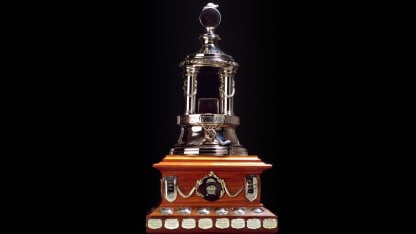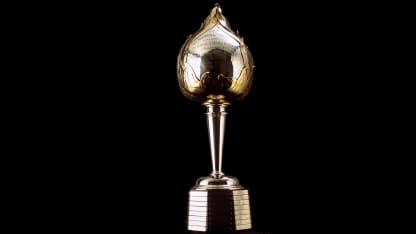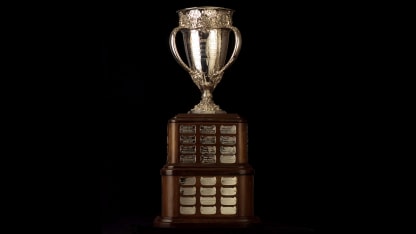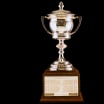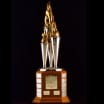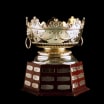The Vezina Trophy is an annual award given "to the goalkeeper adjudged to be the best at this position" as voted by the general managers of all NHL clubs.
Leo Dandurand, Louis Letourneau, and Joe Cattarinich, former owners of the Montreal Canadiens, presented the trophy to the League in 1926-27 in memory of Canadiens goaltender Georges Vezina, who collapsed during an NHL game Nov. 28, 1925, and died of tuberculosis a few months later.
Through the 1980-81 season, the Vezina was awarded to the goaltender(s) who played a minimum of 25 games for the team allowing the fewest goals during the regular season. In 1981-82, Billy Smith of the New York Islanders was named the first winner of the Vezina under the current system.
Jacques Plante holds the record for most times winning the Vezina Trophy with seven, one more than Bill Durnan and Dominik Hasek. However, Hasek has won the most times under the current system of honoring the best individual goalie.
Canadiens goaltenders have won the Vezina 29 times, the most of any team. Under the original definition, there were occasionally multiple winners from the same team in the same season. In 1973-74, Tony Esposito of the Chicago Black Hawks and Bernie Parent of the Philadelphia Flyers shared the award when their teams finished tied for the fewest goals against; it's the only time there was a tie between players from different teams.
The voting is conducted at the end of the regular season; each individual voter ranks the top three candidates on a 5-3-1 points system. Three finalists are named and the trophy is handed out at the NHL Awards after the conclusion of the Stanley Cup Playoffs.
